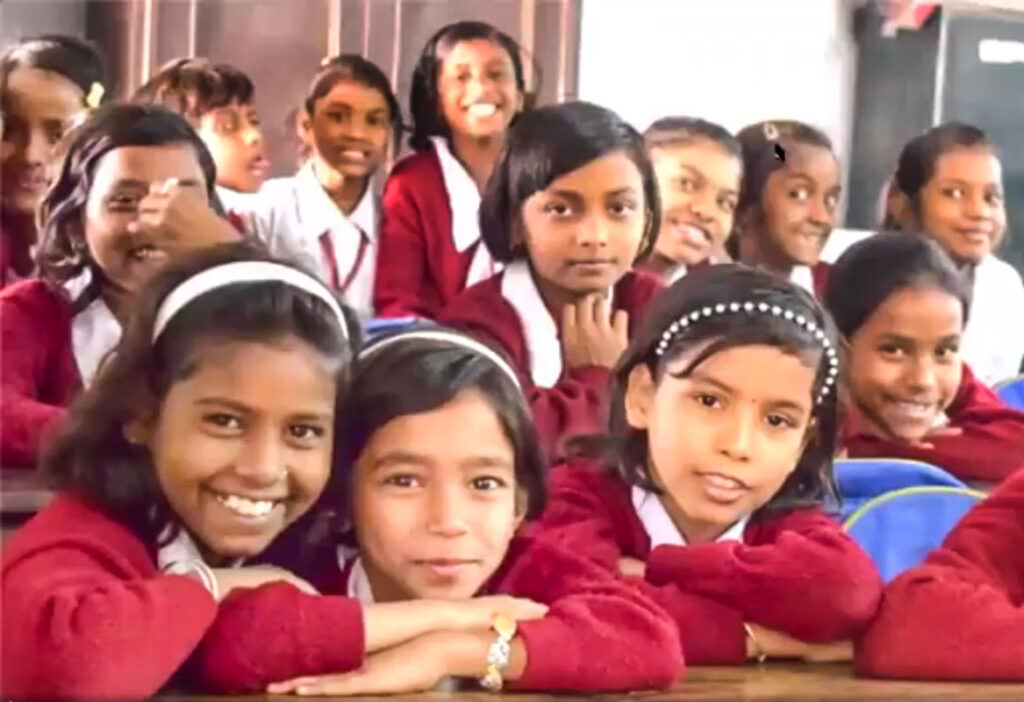The Rotary India Literacy Mission (RILM) aims for total literacy in India by 2025 through its flagship programme TEACH,” said RILM president PRIP Kalyan Banerjee, addressing a zoom meet recently with Union Education Minister Ramesh Pokhriyal Nishank as chief guest. RILM chair Kamal Sanghvi and RIPE Shekhar Mehta anchored the programme where 1,000 participants had logged in. It was also livestreamed on Facebook and YouTube.

“Since its formation in 2014, RILM has made considerable progress in teachers training and adult literacy. The Asha Kiran programme has helped enroll 40,000 children back to formal schooling; 20,000 schools have been converted into Happy Schools and 4,000 libraries have been created in government schools across India,” said Banerjee, and appreciated the central and state governments for their support. “We look forward to more such partnerships until we make India totally literate,” he added.
In an initiative to make youngsters employable, RILM, in partnership with the Apollo Hospitals group has launched a new ‘medi-skilling’ programme to create a paramedical workforce. “This can provide employment to people in hospitals, pharmacies, diagnostic centres,” said Sanghvi. The three-month course, which would otherwise cost ₹50,000, is offered at ₹4,500 a person for those referred by Rotary, and involves 30-day online classes and 60 days of hands-on training in medical institutions. He urged Rotarians to sponsor this course for unemployed youth in their region. Apollo has 28 skilling centres and a centre can be arranged in a specific town for a large group. “I would like to see at least 50,000 candidates trained in a year,” he said.
Sanghvi reiterated the urgent need to train teachers in digital teaching. With the pandemic not giving way, online education has seen a rapid growth in recent days. E-learning is the new normal. Teachers need to sharpen and upgrade their skills to be digitally savvy, he said.
RILM has trained 70,000 teachers in Maharashtra to use e-learning tools and in Delhi 5,000 teachers were undergoing training in a five-day workshop. Sanghvi thanked Rotarians Swati Herkal, RC Wai, RID 3132, and Pran Mehta, RC Delhi Sainik Farms, RID 3011, for coordinating the workshops and said that RILM will support similar training programmes nationwide. The goal is to train 500,000 teachers in a month.
The RILM chair urged the Rotarians to create more Happy Schools. “It takes just ₹300,000–500,000 to transform a school. A child can learn and bloom only if the learning ambience is good.”

Union Education Minister
RIPE Mehta recalled the landmark MoU signed in the presence of Nishank in July between Rotary and the NCERT to provide electronic learning content for students of classes 1–12. “Four months of content in Hindi and English is ready and has been shared with NCERT director Prof Hrushikesh Senapaty,” he told the minister.
Talking about adult literacy Mehta said that Interactors and Rotaractors have so far transformed one lakh illiterate adults into literate ones. Around 27 crore adults are illiterate in India. Of this, seven crore may be too old to learn. Of the remaining 20 crore, Rotary will make 10 crore adults literate, he said, and requested that the government sign an MoU with Rotary to bring out a five-page booklet that will be easy for youngsters to teach adults who will then write the NIOS exam to qualify as literate adults. “Rotary, along with its partners, has 15 lakh volunteers including the Brahmakumaris, Gayatri Parivar, All India Muslim professionals, scouts and guides, Rotarians, Rotaractors, Interactors and RCCs to work for literacy. Together let us work on a mission mode to make India literate by 2025,” he said.
Minister Nishank responded, saying, “your capabilities and strength as an organisation will be supported in every way by the education department.” He added that the literacy programme needs a passionate approach. “It is not the number of people you can bring, it is the number of passionate people you bring that will count and how you put their passion and skills to use to make the programme work.”
He suggested involving students and teachers in promoting literacy. “Create a way to let them help us in this fight against illiteracy by ensuring that no one in any home is illiterate. Also consider including vocational training in your literacy mission.”
He spoke about the new education policy and how it will transform the way youngsters learn.
He appreciated Rotary’s partnership in providing quality online learning content. The ‘one class, one channel’ programme reaches out to children who have no smartphones or internet connection and “it is commendable that we have been able to create an online learning platform for 31 crore students in a record time,” said Nishank.






